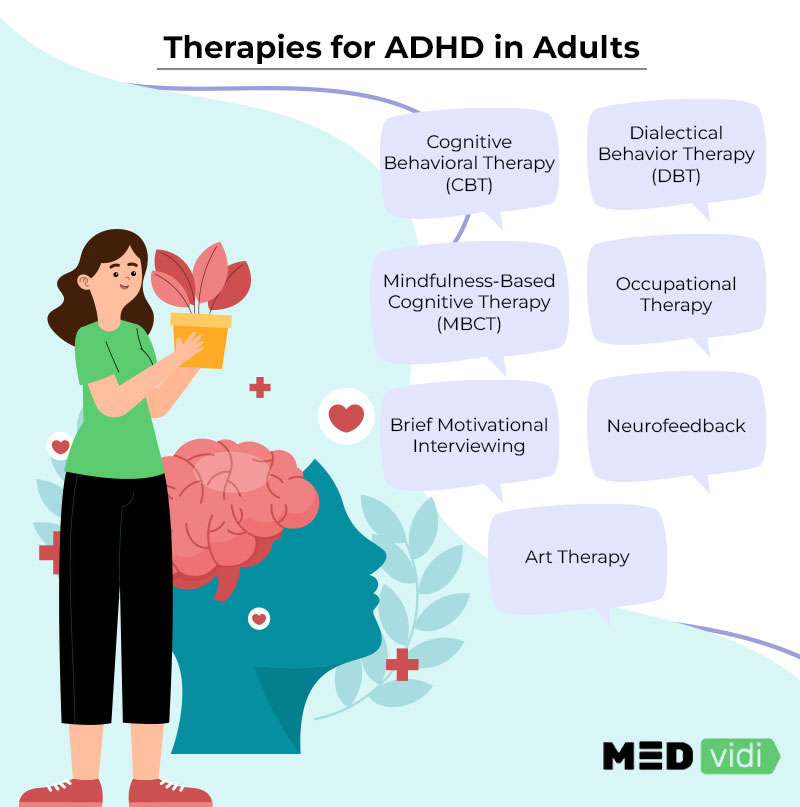Checking Out Efficient ADHD Therapy Options for All Ages
The intricacies of Focus Deficit Hyperactivity Condition (ADHD) existing one-of-a-kind challenges throughout various age groups, necessitating an extensive exploration of efficient treatment options. A combination of behavioral treatments, medicinal treatments, and way of living alterations has shown guarantee in resolving the varied needs of people with ADHD.
Recognizing ADHD and Its Impact
Attention-Deficit/Hyperactivity Disorder (ADHD) is a neurodevelopmental condition identified by consistent patterns of inattention, hyperactivity, and impulsivity that can considerably influence various facets of a person's life. It generally shows up in childhood, although signs can continue right into adulthood. The core signs and symptoms of ADHD can disrupt academic performance, impede social communications, and complicate work-related undertakings.
Individuals with ADHD typically struggle with keeping concentrate on tasks, arranging activities, and following with on directions, which can lead to academic underachievement (Depression Treatment). In social contexts, impulsivity might result in troubles in forming and maintaining partnerships, as people may interrupt conversations or make hasty decisions without thinking about consequences
The variability in symptom discussion indicates that ADHD can affect people in a different way, requiring a customized approach to monitoring. Comprehensive understanding of ADHD's nature and ramifications lays the foundation for exploring ideal therapy choices customized to each person's demands.
Behavioral Therapies for ADHD
Numerous behavior therapies have actually been created to successfully resolve the challenges connected with ADHD, concentrating on modifying particular behaviors and promoting vital skills. Among one of the most identified techniques are cognitive-behavioral therapy (CBT), parent training, and social abilities training.
CBT assists individuals identify and transform unfavorable idea patterns and habits, promoting a much more positive overview and boosted self-regulation. This therapy usually consists of useful strategies for taking care of impulsivity and boosting organization. Moms and dad training programs empower caregivers by equipping them with strategies to strengthen favorable behaviors and set constant borders, which can be specifically advantageous for youngsters with ADHD.
Social abilities training is another crucial component, teaching people with ADHD exactly how to interact properly with peers - Depression Treatment. This approach often includes role-playing and feedback to improve interaction, collaboration, and problem resolution skills
Incorporating these behavior therapies into a thorough treatment plan can significantly improve functioning and lifestyle for people with ADHD. Inevitably, the performance of these therapies relies on customized approaches that consider the one-of-a-kind needs of each person, therefore promoting resilience and adaptability in everyday life.
Medication Options Available
For lots of people with ADHD, drug can play a significant function in managing symptoms and enhancing overall performance. The two key classifications of drugs recommended for ADHD are energizers and non-stimulants.
Energizers, such as methylphenidate and amphetamine-based drugs, official source are the most frequently used treatments. These drugs work by increasing the degrees of natural chemicals, particularly dopamine and norepinephrine, in the brain, which helps improve interest and decrease impulsivity and hyperactivity. They typically generate fast results, making them a preferred option for many patients.

It is necessary for medical care companies to carry out a thorough assessment to establish the most appropriate drug based upon individual needs, medical history, and prospective adverse effects. see this site Routine follow-up and monitoring are likewise vital to make certain the effectiveness of the selected therapy and to make any kind of essential changes.
Way Of Living Adjustments to Take Into Consideration
Taking care of ADHD properly prolongs beyond medication, as lifestyle changes can dramatically boost general well-being and symptom control. Integrating organized regimens is crucial; regular routines help individuals with ADHD handle their time properly and lower feelings of overwhelm.
Routine exercise is one more essential part. Workout not only assists to boost concentration but also boosts state of mind and minimizes anxiety degrees. Tasks such as yoga exercise or team visit sports can be especially advantageous, advertising both physical conditioning and social communication.
Nutrition additionally plays an essential role. Depression Treatment. A well balanced diet rich in omega-3 fats, whole grains, and lean healthy proteins can add to improved emphasis and cognitive function. Restricting sugar and refined foods is a good idea, as these can intensify attention deficit disorder and impulsivity
Rest hygiene is essential for taking care of ADHD symptoms. Establishing a regular sleep timetable and creating a relaxing setting can boost rest quality, resulting in much better attention and emotional policy.
Alternative and Alternative Methods
Alternate and all natural strategies to ADHD treatment provide a varied variety of options that complement traditional techniques. These approaches often focus on way of life adjustments, dietary treatments, and healing practices that aim to enhance overall wellness while dealing with ADHD signs and symptoms.

Mindfulness and behavior modifications are likewise obtaining traction as alternative interventions. Practices such as yoga exercise, reflection, and cognitive-behavioral therapy can grow self-regulation and improve interest. These approaches support emotional strength, which is especially beneficial for individuals with ADHD.
Herbal supplements, such as ginkgo biloba and ginseng, are sometimes discovered; nonetheless, it is essential to seek advice from medical care professionals prior to including these into treatment strategies. While alternative and alternative methods can offer valuable assistance, they ought to ideally be made use of in conjunction with evidence-based therapies to accomplish optimal results for handling ADHD across any ages.
Conclusion
In summary, efficient ADHD therapy necessitates a thorough technique that includes behavior therapies, medicine, way of life alterations, and alternative methods. This multifaceted strategy emphasizes the significance of individualized care in attending to the diverse demands of people with ADHD across all age teams.